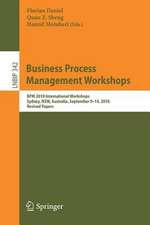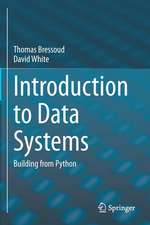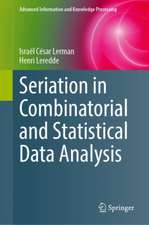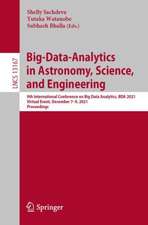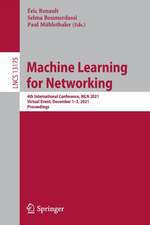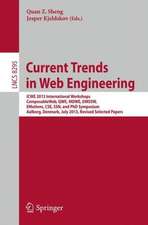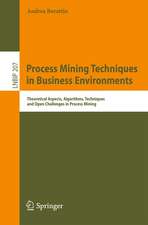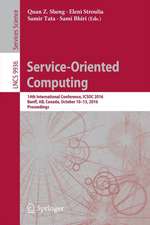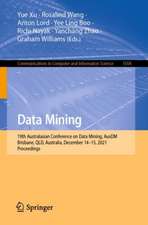Managing Data From Knowledge Bases: Querying and Extraction
Autor Wei Emma Zhang, Quan Z. Shengen Limba Engleză Hardback – 11 aug 2018
To extract knowledge from unstructured Web sources, the authors examine two kinds of Web sources containing unstructured data: the source code from Web repositories and the posts in programming question-answering communities. They use natural language processing techniques to pre-process the source codes and obtain the natural language elements. Then they apply traditional knowledge extraction techniques to extract knowledge. For the data from programming question-answering communities, the authors make the attempt towards building programming knowledge base by starting with paraphrase identification problems and develop novel features to accurately identify duplicate posts. For domain specific knowledge extraction, the authors propose to use a clustering technique toseparate knowledge into different groups. They focus on developing a new clustering algorithm that uses manifold constraints in the optimization task and achieves fast and accurate performance.
For each model and approach presented in this dissertation, the authors have conducted extensive experiments to evaluate it using either public dataset or synthetic data they generated.
| Toate formatele și edițiile | Preț | Express |
|---|---|---|
| Paperback (1) | 695.46 lei 6-8 săpt. | |
| Springer International Publishing – 19 ian 2019 | 695.46 lei 6-8 săpt. | |
| Hardback (1) | 644.81 lei 6-8 săpt. | |
| Springer International Publishing – 11 aug 2018 | 644.81 lei 6-8 săpt. |
Preț: 644.81 lei
Preț vechi: 806.01 lei
-20% Nou
Puncte Express: 967
Preț estimativ în valută:
123.40€ • 128.10$ • 102.89£
123.40€ • 128.10$ • 102.89£
Carte tipărită la comandă
Livrare economică 22 martie-05 aprilie
Preluare comenzi: 021 569.72.76
Specificații
ISBN-13: 9783319949345
ISBN-10: 3319949349
Pagini: 134
Ilustrații: XIII, 139 p. 41 illus., 32 illus. in color.
Dimensiuni: 155 x 235 mm
Greutate: 0.4 kg
Ediția:1st ed. 2018
Editura: Springer International Publishing
Colecția Springer
Locul publicării:Cham, Switzerland
ISBN-10: 3319949349
Pagini: 134
Ilustrații: XIII, 139 p. 41 illus., 32 illus. in color.
Dimensiuni: 155 x 235 mm
Greutate: 0.4 kg
Ediția:1st ed. 2018
Editura: Springer International Publishing
Colecția Springer
Locul publicării:Cham, Switzerland
Cuprins
1 Introduction.- 2 Cache Based Optimization for Querying Curated Knowledge Bases.- 3 Query Performance Prediction on Knowledge Base.- 4 An Efficient Knowledge Clustering Algorithm.- 5 Knowledge Extraction from Unstructured Data on the Web.- 6 Building Knowledge Bases from Unstructured Data on the Web.- 7 Conclusion.
Caracteristici
This book incorporates an extensive survey that overviews the main techniques and research works for the knowledge extraction and querying in knowledge bases. Two types of knowledge bases are introduced, discussed and compared. Based on the survey, key challenges of the addressed topics are discussed. A framework for data management in knowledge base are proposed and for each component in this framework, we provide description and discussion. Thus, this book can be a good reference for the readers who seek to have an overview of knowledge base data management. This book covers several important research topics that are under the umbrella of querying knowledge base and knowledge extraction for the construction of knowledge base. The authors discuss the problems and provide solutions for speeding up querying process, predicting query performance, knowledge cleaning, knowledge clustering and constructing knowledge base from unstructured data. For each problem, this book provides not only technical solutions, but also design and implementation details. Therefore, this book provides both theoretical and applied computing scientific research, making it attractive to a variety set of readers from both academia and industry. The book provides extensive analysis and evaluations from the real-world datasets including knowledge base queries and knowledge data obtained from different sources. Analysis results from the performance study draws a number of open research issues for knowledge extraction and querying. These open research issues and future directions are beneficial for those adopting knowledge base techniques



